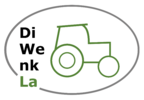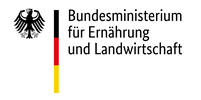In grassland management, yield predictions are important for decisions regarding sowing, fertilization, pest control, irrigation and mowing. Machine learning (ML) is increasingly used for yield prediction by training prediction models based on historical data and evaluating them against new data before putting them into practical use. ML applications in grassland management benefit from improved sensor technologies for field data as well as freely available algorithms and software libraries. Although there is increasing evidence for the accuracy of ML models, it is still unclear to what extent these approaches can be transferred and adapted to the conditions of small-scale grassland farms in Baden-Württemberg. These structures mean that significantly less environmental, management and stock data is available for model training than is the case for large areas. The central problem is therefore the development of prediction models for such datasets.
The objective of subproject 10 is to analyze ML approaches for the yield prediction of small-structured grassland farms:
- Study of the trade-off between data collection effort and higher prediction performance, i.e. to what extent data from previously unused sources, data with higher frequency or data of higher areal detail can enhance performance.
- Study of the suitability of ensemble learning methods that aggregate the predictions of several ML algorithms into a joint prediction, i.e. to what extent the selection of ML algorithms can enhance performance.
- Study of the influence of the size of the training set on the prediction performance, i.e. determination of minimum sizes for given accuracy requirements and the effect of additional training data.
The work program includes experimental studies using datasets from subprojects 11 and 12, the development of prediction models using industrial ML frameworks, the rigorous evaluation of accuracy, robustness and effort using metrics, and the qualitative investigation of the suitability for grassland farms of the experimental field. The expected results include the developed methods and knowledge about the suitability of the examined approaches for grassland farms.

